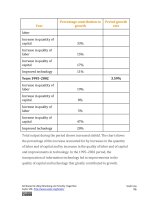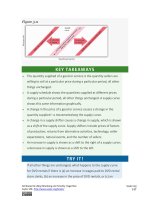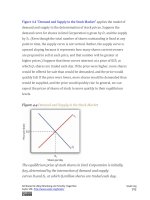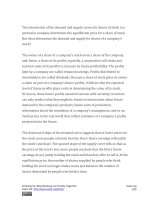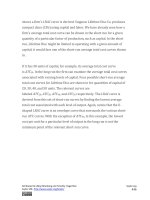Authors libby rittenberg 769
Bạn đang xem bản rút gọn của tài liệu. Xem và tải ngay bản đầy đủ của tài liệu tại đây (416.47 KB, 1 trang )
Professional people generally belong to organizations that represent their
interests. For example, physicians in the United States belong to the
American Medical Association (AMA), and lawyers belong to the American
Bar Association (ABA). Both organizations work vigorously to advance the
economic interests of their members.
Professional organizations often lobby for legislation that protects their
members. They may seek to restrict competition by limiting the number of
individuals who can be licensed to practice a particular profession. The
AMA has been very successful in limiting the number of physicians, thus
maintaining higher salaries than would otherwise exist. The ABA has
fought legal reforms aimed at limiting awards to plaintiffs who win
damage suits; such reforms would be likely to reduce the incomes of
lawyers.
Producers’ Cooperatives
Independent producers sometimes band together into a cooperative for
the purpose of selling their products. The cooperative sets the price and
assigns production quotas to individual firms. In effect, a cooperative acts
as a legal cartel.
Because they violate the provisions of laws that outlaw such arrangements
in most industries, producers’ cooperatives must be authorized by
Congress. Farmers have sometimes been given such rights when they are
confronted by monopsony buyers. For example, Congress granted dairy
farmers the right to form cooperatives in the 1920s because they faced
monopsony buyers. High transportation costs for fresh milk, together with
economies of scale in processing milk, generally left only one dairy
Attributed to Libby Rittenberg and Timothy Tregarthen
Saylor URL: />
Saylor.org
769
